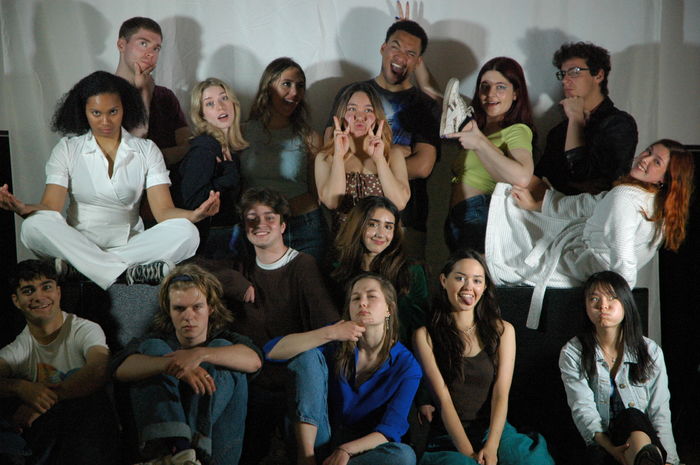Netflix’s botched and problematic adaptation of Rebecca
Sasha Brealey explores how Netflix’s Rebecca airbrushes the original novel and how Hollywood’s dark and unnerving willingness to romanticise toxic men highlights a wider problem in modern society

Over the summer, I lived my dark academia fantasy and worked in a quaint restaurant that had old books dotted everywhere — Daphne du Maurier’s Rebecca was perched right next to the till. I remember seeing a woman gaze over at it; asking her if she’d read it, she turned around and smugly replied that no she hadn’t, but she had seen the 2020 Netflix Original film. Of course. She then ran to catch up with her friends, leaving me no time to explain how this adaptation could not be more frustratingly far from du Maurier’s gothic classic — how it romanticises toxic masculinity, vilifies powerful women, and perverts female beauty standards.
“It becomes apparent that what du Maurier made gothic, Netflix has turned into gaiety”
The book introduces Maxim as a gothic antihero, with his “arresting” and “medieval” face a part of the dark and dingy aesthetic of the gothic. With his “ill” temper, he is the epitome of the mysterious Byronic hero — an archetype that in modern terms translates to the ‘toxic man’. So, how did he go from this to the dreamboat we meet in Wheatley’s Netflix adaptation? Introduced in the warm light of the French sun with glimmering blue eyes and a shy smile, it becomes apparent that what du Maurier made gothic, Netflix has turned into gaiety.
Maxim’s lost soul, summer-loving vibe makes the viewer who’s read the book almost forget that this is the Maxim who (spoiler alert!) has murdered his previous wife. As soon as this ‘soft boy’ aesthetic emerges on screen, we can be sure that Wheatley’s film will disregard any hint of toxic masculinity — indeed, this becomes clear as Maxim’s temper is flattened into a two-dimensional nicety. We soon realise that we’re viewing the story though rose-tinted glasses we didn’t agree to put on. The fact that Maxim’s red flags remain unaddressed conveys the film’s strange and perverse excusal of abusive behaviour and, by extension, its romanticisation of toxic masculinity that is so prevalent in today’s society. The ‘bad boy’ and Prince Charming have practically, and oh so paradoxically, become synonymous.
Speaking of Disney princes, Maxim is portrayed by Armie Hammer, an actor who (along with featuring in our favourite Italian indie romance, Call Me By Your Name), played the prince in 2012’s Snow White adaptation, Mirror Mirror. Of course, actors shouldn’t be confined to playing one type of role, but this connection does mean we subconsciously enter the movie with a pre-existing impression of Hammer as a Disney prince — the epitome of charm, romance and chivalry. Its imprint remains on our minds, a perfume that masks the reeking stench of Maxim’s antiheroism.
“The fact that Maxim’s red flags remain unaddressed conveys the film’s strange and perverse excuse of abusive behaviour and, by extension, its romanticisation of toxic masculinity that is so prevalent in today’s society”
Our protagonist, Mrs de Winter, is also portrayed by someone with a Disney past: Lily James from Kenneth Branagh’s 2015 Cinderella. Also featured as a cover model for Glamour, Elle and BAZAAR, James has a defined beauty in both Disney and Hollywood. Yet her character in Rebecca is meant to be a “shy, uneasy colt” with a “lack of poise” — a so-called ‘plain Jane’. This epitomises how unrealistic beauty standards have become. As much as I adore 2005’s Pride and Prejudice, it pains me to say that Keira Knightley as Elizabeth Bennet creates a similar impact, in which ‘normal’ female characters are played by beautiful Hollywood stars. If Keira Knightley and Lily James are the new ‘average’, what does that mean for the rest of us?
The final elimination of any feminism lies in how the infamous film also vilifies independent women (seriously, how did this get by?). Mrs Danvers and Rebecca are both deceptive and cruel characters, but Wheatley frames it so that instead of respecting their non-conformity, we resent their sovereignty. When Mrs Danvers testifies against Maxim in court, it is depicted as a betrayal rather than a fight for justice; the independent woman becomes the villain Maxim was meant to be.
Even the worst domestic violence is excused, as Maxim’s confession to murder is followed by soft guitar music and a hug that mocks the ferocity of his crime. It is therefore simultaneously disappointing and unsurprising when the film ends on the ‘happy couple’ romantically together in a hotel: “just another stop before we find our real home”. A line and scene that make me cringe, and which, might I add, do not feature in the book.
This misinterpretation of classic literature reflects how society is moving backwards in its feminist journey; the 2020s romanticises a toxic man reprehended in the 1930s. The film’s last line hears Mrs de Winter voicing how she has saved “the one thing worth walking through flames for: love”; a a final “screw you” to the book. So have we really just watched a gothic classic, or have we watched another vacuous ‘happily ever after’ romance? That we are left with a cliché kiss and not the book’s “crimson sky” splashed with “blood” and “ashes” makes me think it is the latter.
 Comment / Anti-trans societies won’t make women safer14 November 2025
Comment / Anti-trans societies won’t make women safer14 November 2025 News / Controversial women’s society receives over £13,000 in donations14 November 2025
News / Controversial women’s society receives over £13,000 in donations14 November 2025 Comment / Be mindful of non-students in your societies12 November 2025
Comment / Be mindful of non-students in your societies12 November 2025 Theatre / The sultry illusions and shattered selves of A Streetcar Named Desire13 November 2025
Theatre / The sultry illusions and shattered selves of A Streetcar Named Desire13 November 2025 News / Stolen plate returned to Caius after 115 years12 November 2025
News / Stolen plate returned to Caius after 115 years12 November 2025










